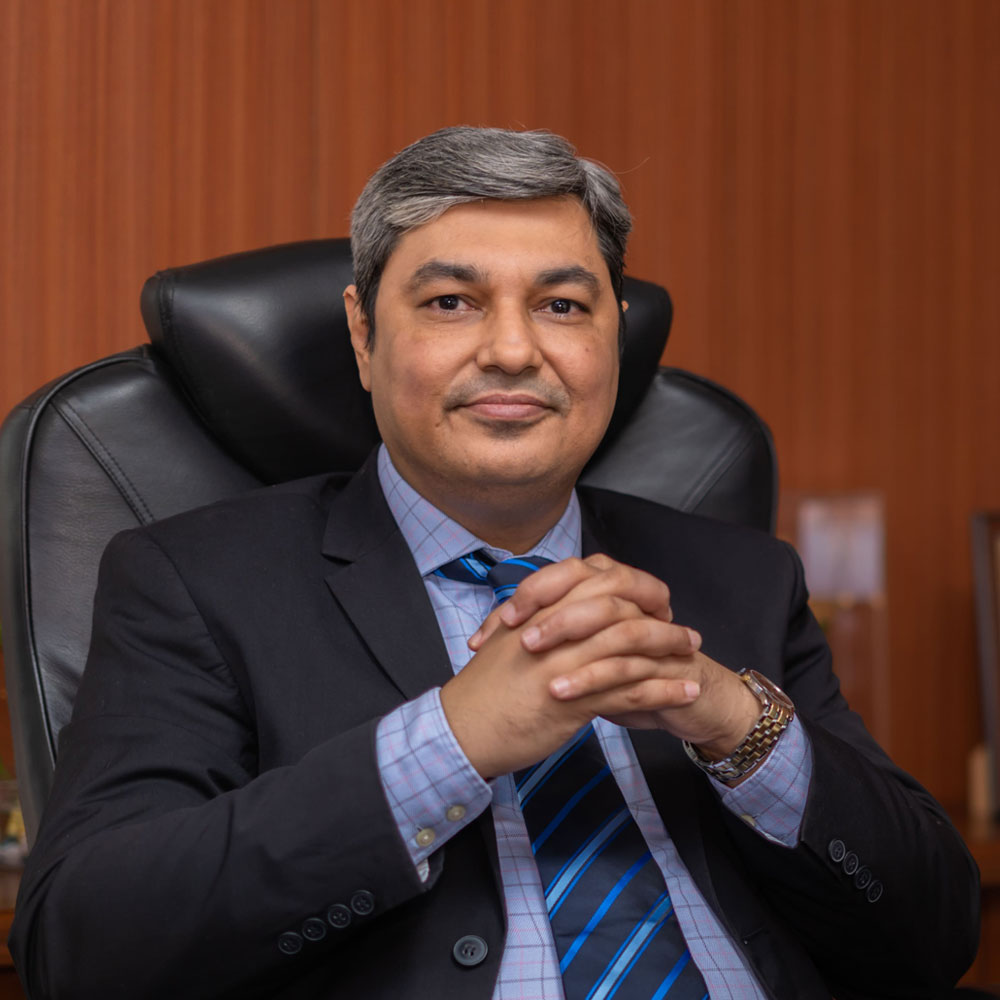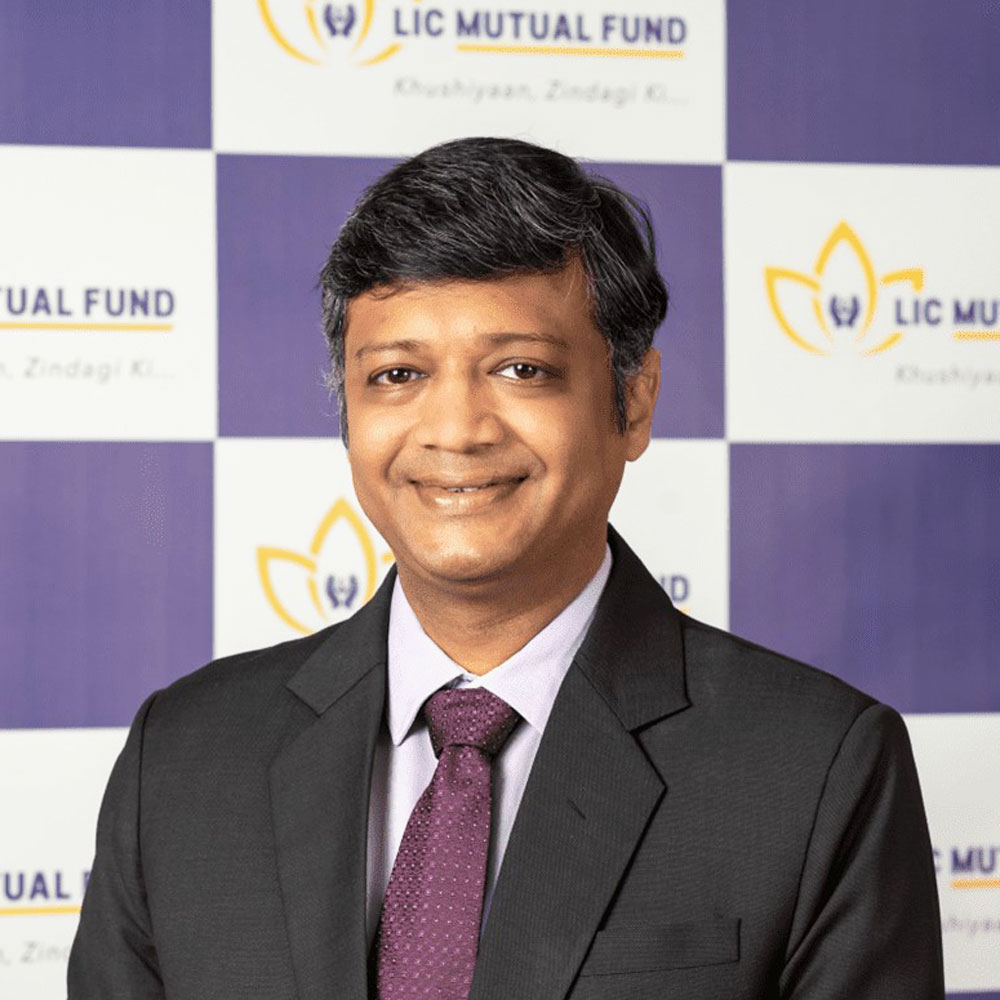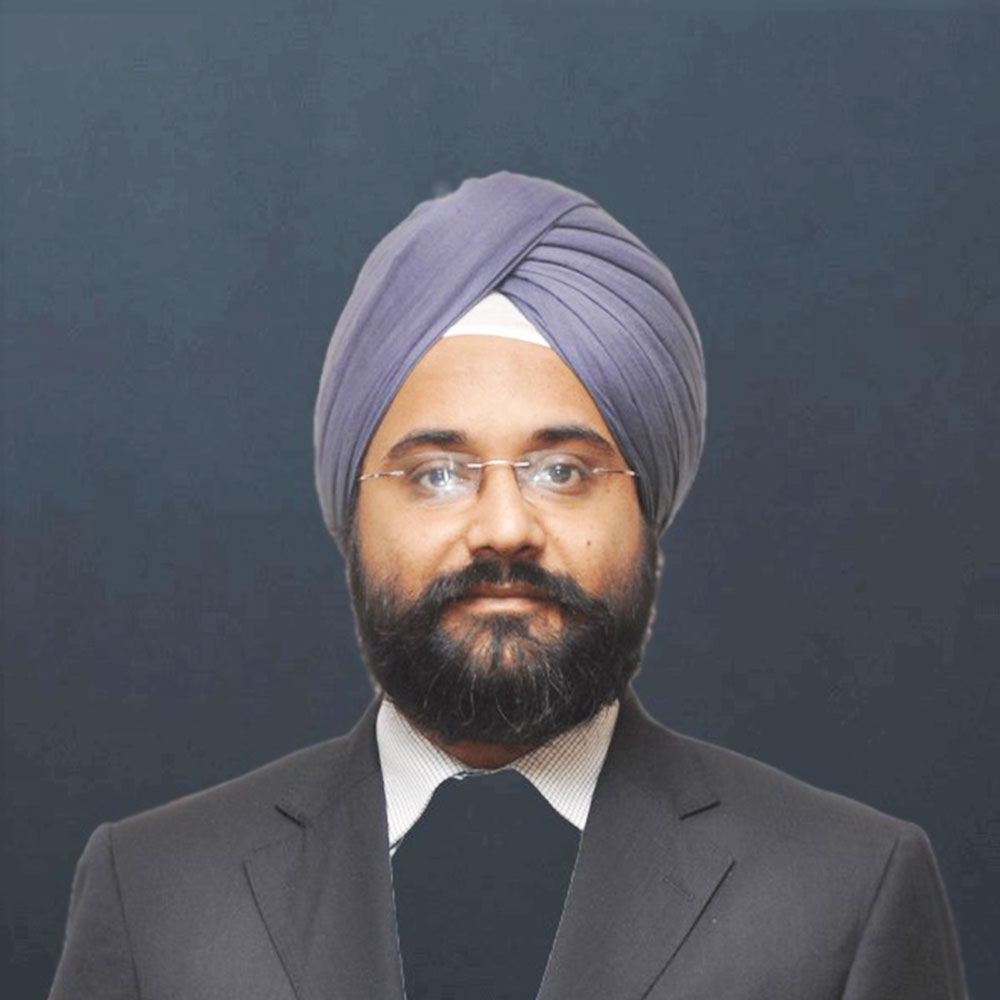Mr. Marzban Irani
Chief Investment Officer – Fixed Income, LIC Mutual Fund
Mr. Marzban Irani is our debt market expert having rich experience of 25 years in Fixed Income. He has played a pivotal role in building LICMF’s image of Mutual Fund of investor’s choice for Debt funds. Mr Irani is a PGDBM - Chetana’s Institute of Management & Research, Mumbai. B.Com – Mumbai University.
Experience:
Chief Investment Officer Fixed Income - LIC Mutual Fund Asset Management Ltd. (w.e.f. 24/04/2019)
Fund Manager Fixed Income - LIC Mutual Fund Asset Management Ltd. (w.e.f. 04/08/2016)
VP Fixed Income - DSP BlackRock Investment Managers (Jun 2014 Jul 2016)
Senior Fund Manager Fixed Income - TATA Asset Management (Jun 2011- May 2014).
Fund Manager Fixed Income METLIFE INDIA INSURANCE (Sep 2010 May 2011)
Fund Manager Fixed Income - Mirae Asset Global Investment Mgmt India (Jan 2008 Jul 2010)
Fund Manager Fixed Income TATA Asset Management (Sep 2000- Nov 2007)
Q1. May 2025 witnessed one of the year's strongest net FPI (Foreign Portfolio Investor) inflows. What could be the reasons behind this surge?
Ans 1. Debt inflow was only 1100 cr.
Q2. How do you interpret the RBI's recent repo rate and CRR cuts? Do you believe the RBI has strategically frontloaded these measures, anticipating a surplus liquidity situation that might require further rate adjustments closer to Q4 FY26?
Ans 2. In the June 2025 policy the RBI has cut the repo by 50 bps. When the rate cut cycle started, the cut expectation was lower. In the rising interest rate scenario, the domestic rate hikes were limited unlike the US where the rates went up from almost 0 to 5%. Hence the leeway to cut was limited. Domestic inflation has bottomed out. Going ahead, there are geo- political risks. Ukraine Russia war is not yet over, the recent Iran Israel conflict is on and India has had a short war with Pakistan. Monsoon which was expected to be normal has been below expectations in the month of June. We would know by august how the monsoon has fared like spatial distribution etc. Oil prices have moved up and India being a net importer of oil has to be watchful. All these factors may pose an upside risk to inflation. Going ahead, global growth is a challenge. Also private capex needs to come up. Consumption needs a boost. Hence between growth and inflation tradeoff , the growth numbers needed a push. Hence, this was a good decision from RBI to cut rates on a proactive basis. As far as CRR is concerned, as we move into the busy season, at the time of advance tax outflow/GST outflow there can be liquidity mismatch temporarily. Hence infusion via CRR may help to balance out liquidity.
Q3. The RBI's shift from an accommodative to a neutral stance has surprised many. What do you believe is the rationale behind this change, and how do you anticipate it will impact the RBI's future projections?
Ans 3. The leeway to cut is limited. Accommodative stance indicates a cut or a pause. As the leeway to cut is not visible in the immediate future, the neutral stance was announced. As far as liquidity is concerned RBI has ensured ample liquidity with a preemptive CRR cut especially during the festive season which would help in further transmission of the rate cuts. RBI may continue to be data dependent especially on the geo political front and guidance by FED.
Q4. What does rise in US Bond Yields mean for Indian markets? Could this lead to a rotation from equities to bonds, as seen historically?
Ans 4. Decoupling has been happening in the last few years. Spread which was around 500 bps has now shrunk to around 150 bps. DE dollarization is the key thing. China has reduced US treasury holding and central banks are shifting gradually to gold reserves. Today the dollar is the reserve currency but going ahead it might lose this position. What will matter for rates in India is the stability of currency which has been largely impacted currently by the geo political scenario rather than US rates.
Q5. Are you observing a growing investor preference for Debt + Arbitrage funds? How do you assess their suitability in the current market environment?
Ans 5. From a tax perspective this product is looking good at the moment. Volatility is less. However, investors should choose to invest based on their investment horizon and risk appetite.
Q6. What factors do you anticipate will drive the Indian fixed income market in 2025?
Ans 6. In the last three years starting July 2022 where the yields almost peaked, investors in fixed income have been getting capital appreciation besides regular accrual. As we move ahead capital appreciation looks limited or flat. Hence it will be an accrual strategy. Hence investors with fixed income allocation should stick to their allocation. It’s a cycle which will change. The fiscal deficit number has been declining. The government is following a prudent path. This might lead to a global rating upgrade going ahead.
Please note we have published the answers as it is received from the Fund Manager of LIC.
Note: Views provided above are based on information in the public domain and subject to change. Investors are requested to consult their mutual fund distributor for any investment decisions.
Source: RBI, Bloomberg.
Disclaimer: The views expressed herein are based on internal data, publicly available information and other sources believed to be reliable. Any calculations made are approximations, meant as guidelines only, which you must confirm before relying on them. The information contained in this document is for general purposes only. The document is given in summary form and does not purport to be complete. The document does not have regard to specific investment objectives, financial situation and the particular needs of any specific person who may receive this document. The information / data herein alone are not sufficient and should not be used for the development or implementation of an investment strategy. The statements contained herein are based on our current views and involve known and unknown risk and uncertainties that could cause actual results, performance, or event to differ materially from those expressed or implied in such statements. Past performance may or may not be sustained in the future. LIC Mutual Fund Asset Management Ltd. / LIC Mutual Fund is not guaranteeing / offering / communicating any indicative yield on investment made in the scheme(s). Neither LIC Mutual Fund Asset Management Ltd. and LIC Mutual Fund (the fund) nor any person connected with them, accepts any liability arising from the use of this document. The recipients before acting on any information herein should make his/her/their own investigation and seek appropriate professional advice and shall alone be fully responsible / liable for any decision taken on the basis of information contained herein.
MUTUAL FUND INVESTMENTS ARE SUBJECT TO MARKET RISKS, READ ALL SCHEME RELATED DOCUMENTS CAREFULLY






